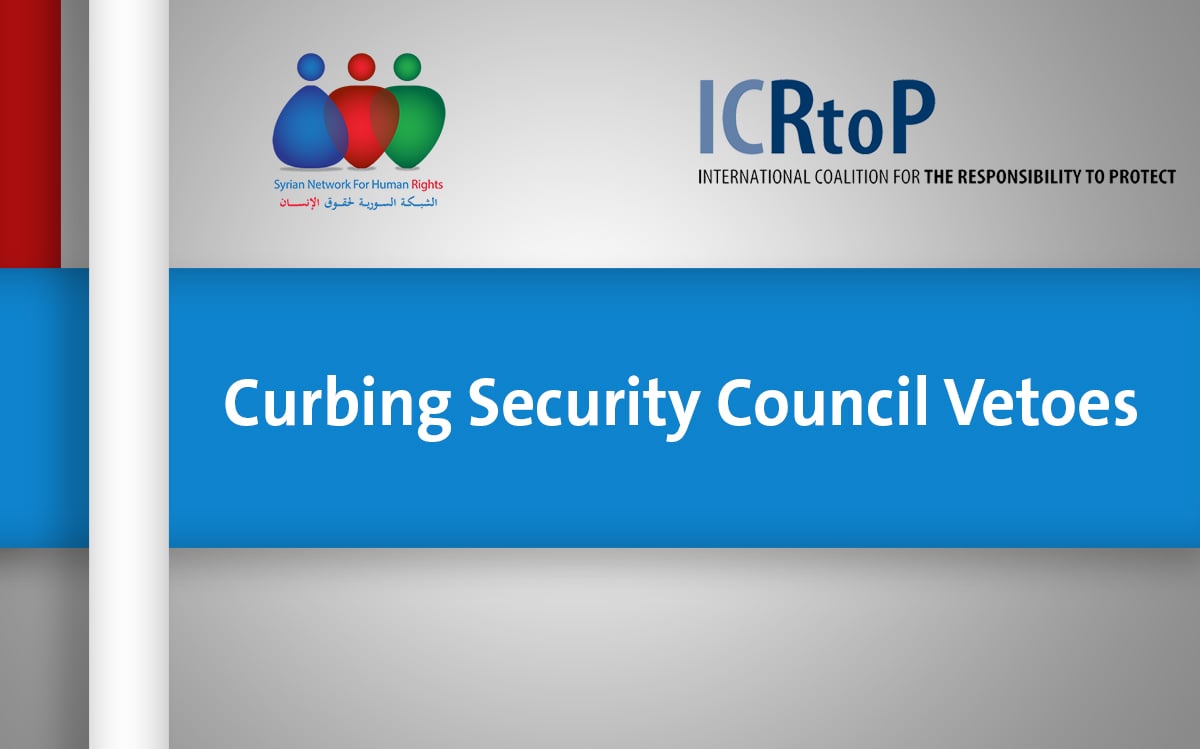By William Pace and Fadel Abdul Ghany

Since the founding of the United Nations seventy years ago, five states—China, France, Russia, the United States, and the United Kingdom, often referred to as the P5—have wielded a so-called “veto power”. Veto power means that whenever the UN Security Council votes on a resolution—to apply an arms embargo on North Korea, to create a peacekeeping mission in Darfur, or authorize sanctions on South Sudan, etc.—these five countries individually have the power to stop the resolution from going forward. A veto scuttles the chances for any collective and legal international action to address situations which concern all of humanity—whether they be a potential future genocide in Myanmar, Kim Jong-un’s terrorization of his population, and recurrent war crimes in Gaza.
The inclusion of a veto power in the UN Charter was meant to ensure buy-in to the new international body from the victors of World War II. Indeed, many argue that the Soviet Union and the United States would not have joined the UN without possessing such power. To be sure, without the assurance of a veto for the U.S. and the Soviet Union, it is possible that the UN may have gone the way of the League of Nations by not surviving the Cold War.


